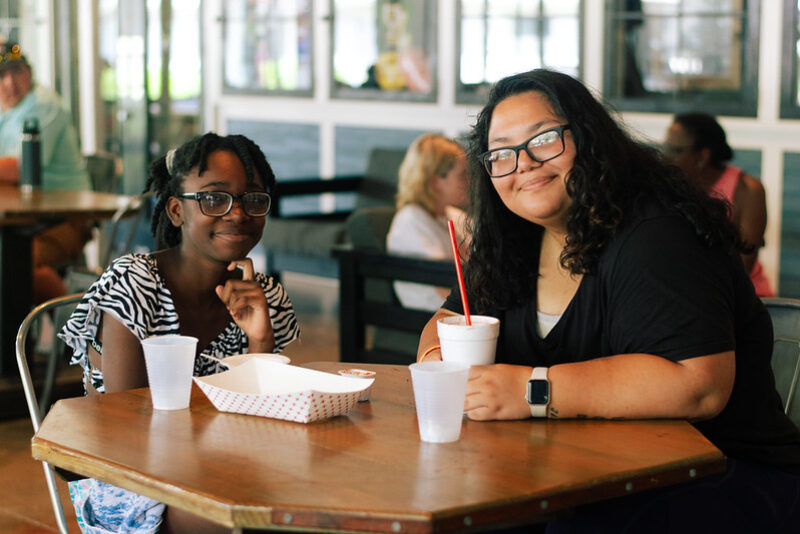For 80 years, Youth For Christ has shared with teens the life-changing hope and healing found in Christ. One of the organization’s distinctives is serving young people with specific needs that exceed the general scope and resources of contemporary ministries.
One such group is students living with hearing loss. The CDC estimates that roughly 1.7 children out of every 1,000 has an identifiable hearing loss at birth. This translates to a significant population of young people who communicate using American Sign Language. While those who live in the deaf world foster communities of individuals who see the world through their unique lens, it’s challenging to make these same meaningful connections to the wider hearing world.
Deaf Teen Quest was created as a unique ministry of YFC to fill the gap to reach these students.
Feeling Seen And Understood
Matthew Belwood, National Director of YFC’s Deaf Teen Quest, says, “YFC Deaf Teen Quest teams build Christ-centered relationships with deaf and hard of hearing students. As with every YFC program, teams of caring adults enter the world of these teenagers as they face pivotal moments in life.”
YFC’s Deaf Teen Quest’s chapter in West Michigan has seen tremendous success in reaching these young people who often struggle on the fringe of their communities.
Dan Kregel, Executive Director of YFC West Michigan, said, “These are kids who are often forgotten. Because of their isolation, we often don’t think about them. And yet, they desperately need to hear about the good news of Jesus. We provide a place for deaf and hard of hearing kids to come and be surrounded by other people just like them. They feel seen and understood at a deeper level.”
Many may even find it challenging to connect in meaningful ways at home.
Jesus Loves Just The Way You Are
“Eighty percent of deaf teens grow up in families of hearing,” Kregel noted. “Most often, no one in their family knows sign language. You can imagine family dinners sitting around the table, with others laughing and sharing stories, while the deaf child is unable to interact in that way. This can feel so isolating. So, we want to come alongside these young people and let them know that Jesus sees them, knows them, loves them and adores them, just the way they are.”
In addition to sharing God’s love, YFC Deaf Teen Quest helps students develop essential life skills.
Brenda Sprunger, Director of YFC West Michigan, noted, “One big challenge is the lack of conversation around deafness with these teens’ parents. These young people don’t have a baseline understanding of what life is like in their parents’ world and in the world at large. As a result, they sometimes don’t learn problem-solving skills and how to communicate with people outside of their school and their home. They may not even know how to make a phone call. So, in addition to sharing the gospel, we help them learn crucial skills for daily living.”
Hosting Camps and Trips
YFC’s Deaf Teen Quest even offers students a traditional summer camp experience.
Kregel said, “Sometimes people forget that these kids are simply kids, and that they want to go canoeing, hike, or do fun activities like all of their peers. At our Deaf Teen Quest Camps, they get that opportunity. Plus, all of the DTQ volunteers know sign language, and we are able to provide a place where communication barriers don’t exist for these teens during this week of camp and weekly at our DTQ Club meetings. By providing a safe space that celebrates exactly how God made them, many deaf kids feel more comfortable and are able to open up and seek Christ.”
And it’s this experience — the opportunity to hear about a God who loves them — that ultimately creates a throughline for every YFC initiative.
Belwood said, “YFC’s goal is to see that every young person in every people group in every nation has the opportunity to make an informed decision to be a follower of Jesus Christ and become a part of the local church — including the deaf community.”
